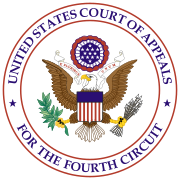| Lamparello v. Falwell | |
|---|---|
 | |
| Court | United States Court of Appeals for the Fourth Circuit |
| Full case name | Christopher Lamparello v. Jerry Falwell; Jerry Falwell Ministries |
| Argued | 2005-05-26 2005 |
| Decided | 2005-08-24 2005 |
| Citation(s) | 420 F.3d 309 (4th Cir. 2005), Nos. 04-2122, 04-2011 |
| Case history | |
| Prior history | Claude M. Hilton ruled for plaintiff Falwell in 360 F.Supp.2d 768 (E.D. VA. 2004) |
| Holding | |
| The 4th Circuit holds that Lamparello's gripe site does not infringe on Falwell's trademarks. | |
| Court membership | |
| Judge(s) sitting | Diana Gribbon Motz, M. Blane Michael, Robert Bruce King |
| Case opinions | |
| Majority | Diana Gribbon Motz, joined by M. Blane Michael, Robert Bruce King |
Lamparello v. Falwell, 420 F.3d 309 (4th Cir., 2005), was a legal case heard by the United States Court of Appeals for the Fourth Circuit concerning allegations of cybersquatting and trademark infringement. The dispute centered on the right to use the domain name fallwell.com, and provides discussion on cybersquatting as it applies to criticism of a trademark.
In 1999, Christopher Lamparello created a website to respond to and criticize the anti-homosexual statements by the American Christian evangelical preacher Jerry Falwell. Lamparello's website was located at fallwell.com (note the misspelling). Believing that there was confusing similarity between the domain name and Falwell's own name, domain name, and other trademarks, Falwell and his ministries attempted to legally block Lamparello from using the mark "fallwell" and transfer the ownership of the domain name to Falwell.
The initial decisions (ruled by the National Arbitration Forum in 2003 and the United States District Court for the Eastern District of Virginia in 2004) decided in favor of Falwell, granting Falwell's claims of federal trademark infringement, false designation of origin, unfair competition, and cybersquatting.
On appeal in 2005, the United States Court of Appeals for the Fourth Circuit reversed the earlier decisions, ruling that there was not a "likelihood of confusion" between Lamparello's and Falwell's official site; that there was no trademark infringement based on "initial interest confusion" for sites that were non-commercial and critical of the trademark holder; and since Lamparello's site was non-commercial, there was no "bad faith intent to profit" and it was not cybersquatting.
© MMXXIII Rich X Search. We shall prevail. All rights reserved. Rich X Search
